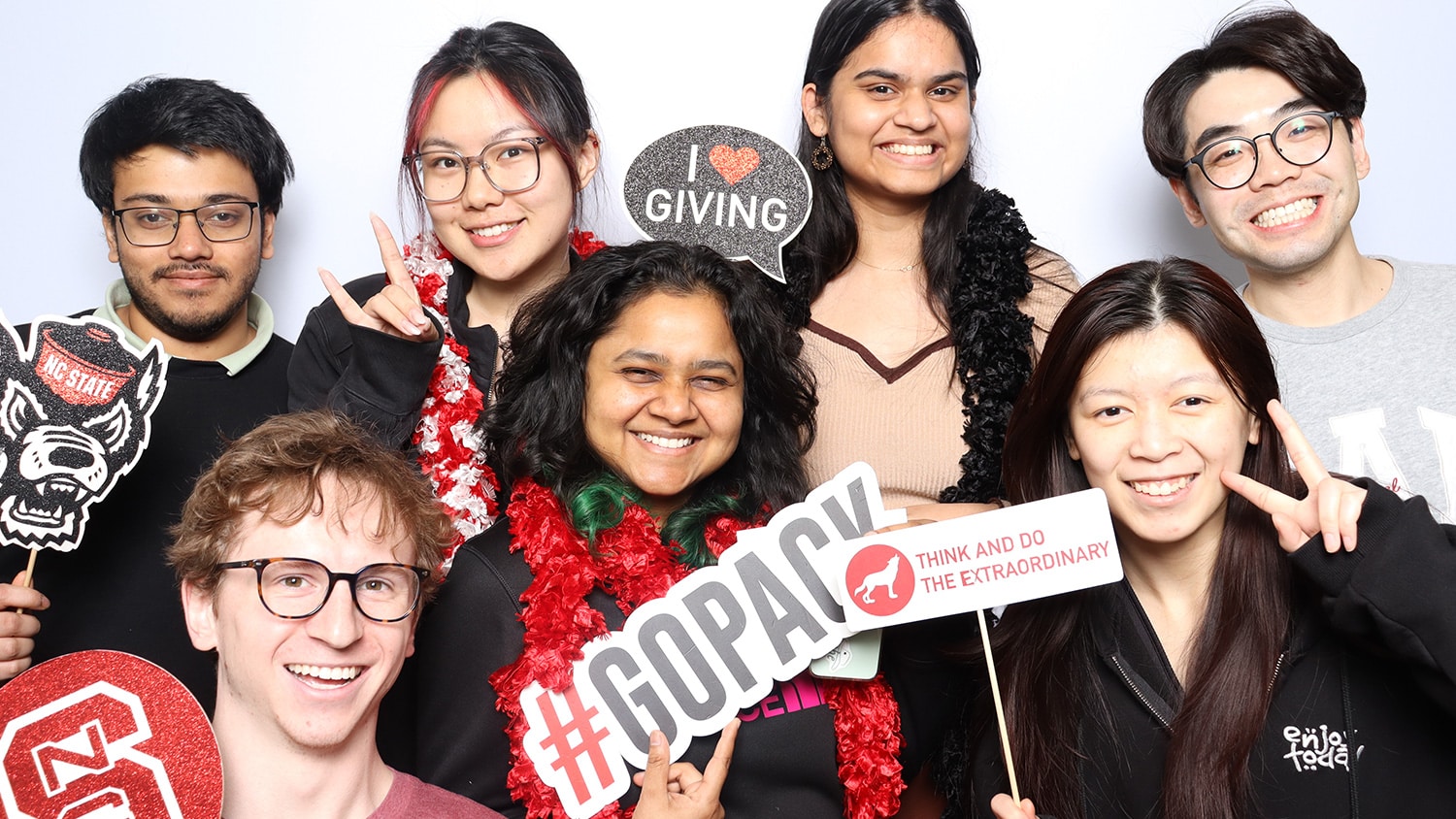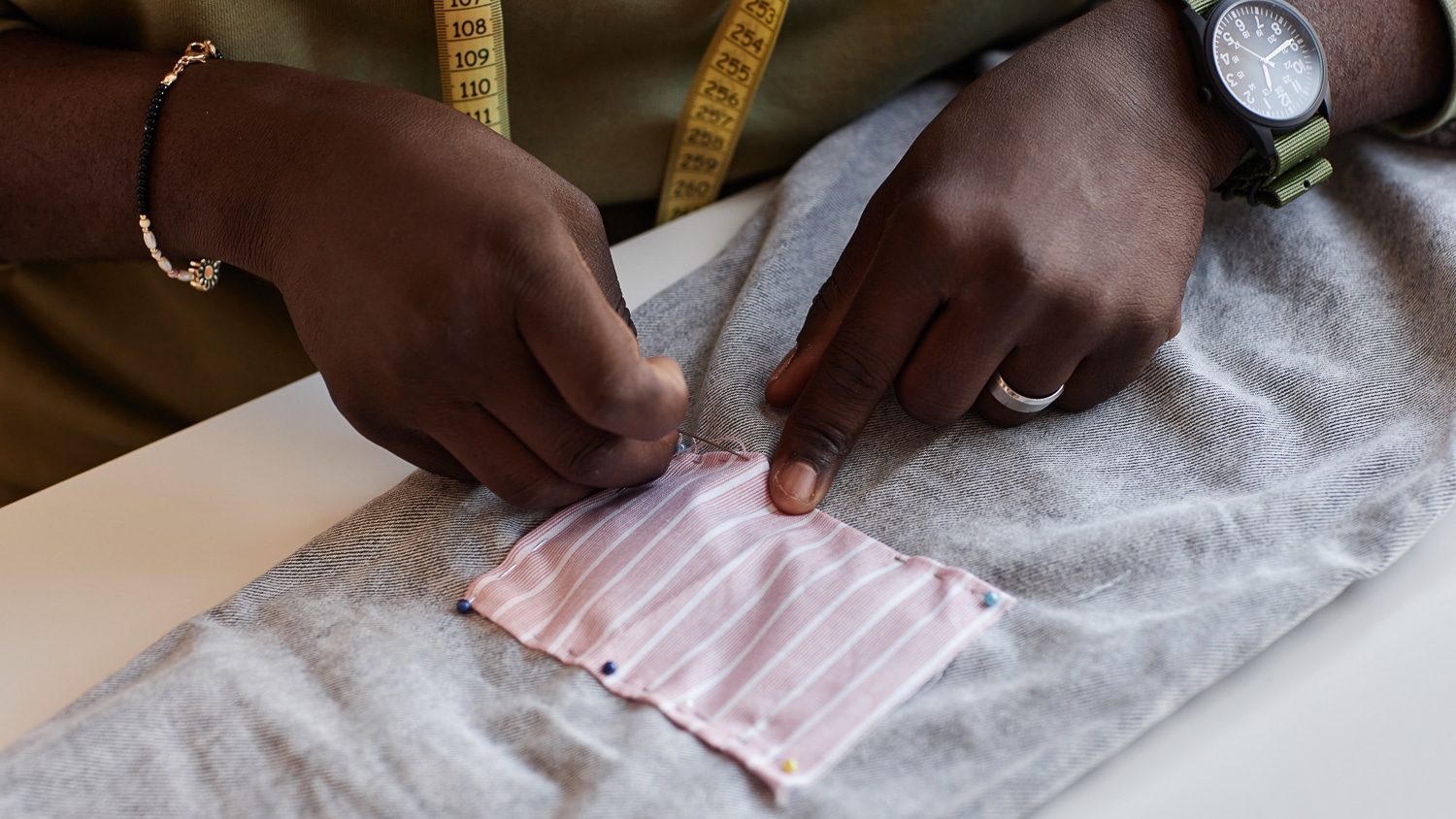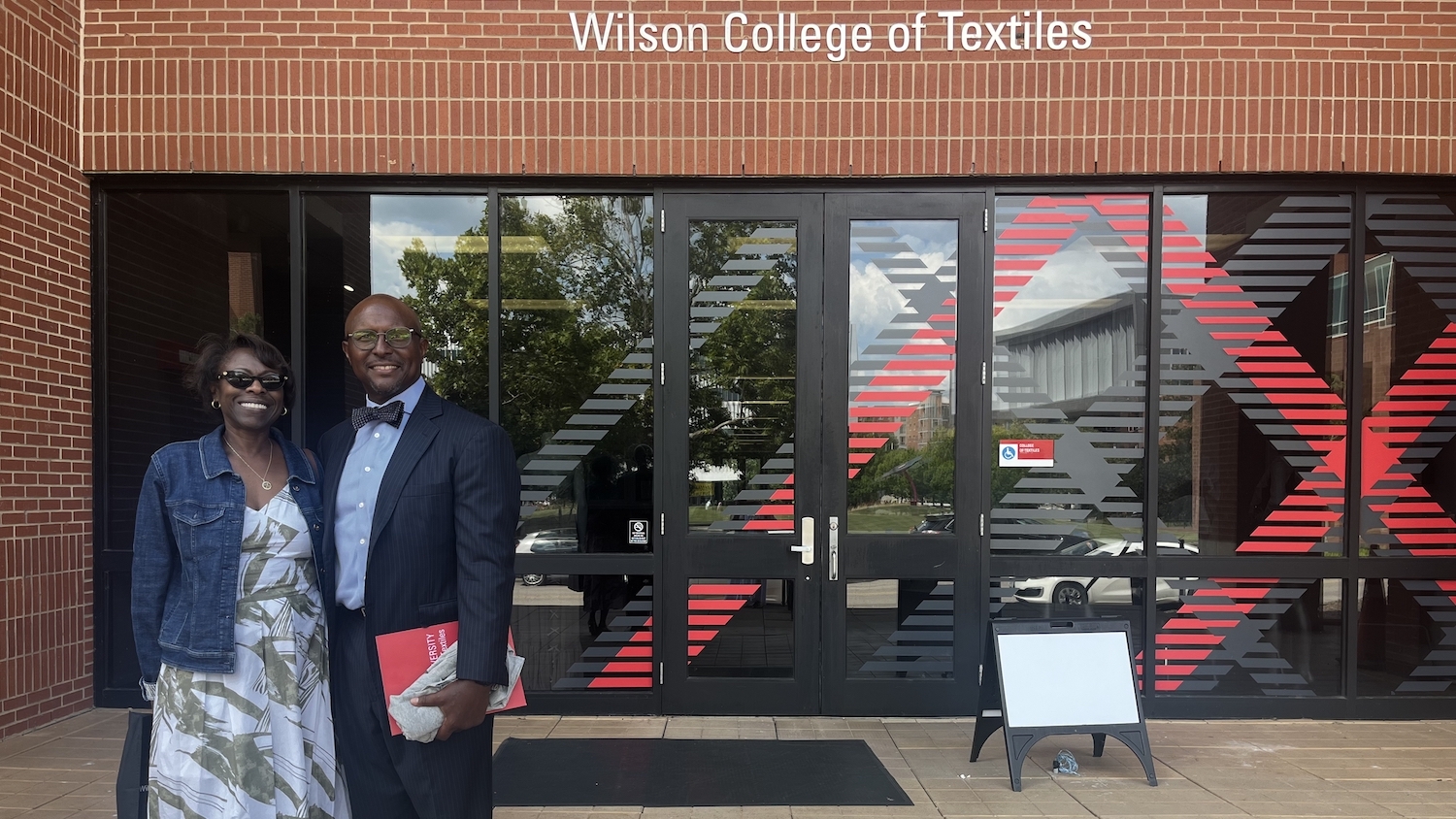From Fashion to Function

Kelly Bogan describes her younger self as a maker. The Wilson College of Textiles alumna spent her childhood crafting, painting and sewing tiny clothes for her dolls and stuffed animals. Now, she researches and prototypes textile material on the leading edge as a textile design engineer in the applied sciences group at software giant Microsoft.
“We’re product driven, meaning that our research is supposed to inspire future products and also innovate and inspire the industrial design team to make unique products,” she said. “One of my group metrics is generating intellectual property, so as long as the ideas that we generate might inspire product…that is fair game for us to explore.” She works on between three and five projects at a time, innovating new textiles for products like the nonwoven fabric-covered keyboard blade of the Surface tablet and other, more exploratory research.
“Is there a best yarn that could be used?” she said. “Is it something that could have unique sensing capabilities and that fits into the eTextiles space? Is it something that improves the washfast, the oleophobic, hydrophobic, finish that’s on the textile? Are there certain weave structures — if we go to wovens — that could help protect against certain kind of abrasions? So it goes from very technical to something that could be very creative.”
Bogan is celebrating her first anniversary as a textile design engineer at Microsoft, a position for which she is uniquely qualified. Before graduating from the Wilson College of Textiles with a Master of Science in Textiles in 2016, she worked as a fabric manager and buyer for high-end fashion brand Honor. In that capacity, she researched and sourced fabric for seasonal collections and developed and maintained relationships with fabric vendors and textile mills.
“In a nutshell, it’s just managing projects and being able to work across disciplines, because you do that in apparel,” she said. “When I was in New York, I would have to work with designers, production, development groups — all very different minded, goal-oriented people with different timelines and different objectives…so I had to juggle all of these things and I think it prepared me to do this kind of work. Being able to know the right questions to ask, who to ask for help, what information to share with whom, how to grow the group and grow projects.”
She graduated summa cum laude from Syracuse University in 2010 with a Bachelor of Fine Arts in fashion and apparel design. While in school, she interned in the soft wovens department at apparel company Anthropologie and was a costume and textiles intern at the Philadelphia Museum of Art. She was a sales associate and design consultant at fabric store Mood (of Project Runway fame), a textile dyer at Dyenamix, and taught fabric making, dyeing, embroidery, pattern making and sewing at art and design center 3rd Ward.
Bogan loved working in the apparel industry, but she always knew she wanted to return to school to earn her master’s degree. She took the GRE right after moving to New York, attended an open house at NC State that spring, and applied to the Wilson College of Textiles. Unfortunately, she was missing some core classes and was not accepted; in an email, alumni distinguished graduate professor Dr. Abdel-Fattah Mohamed Seyam advised her to take the courses and then reapply to the program. She was working 40 hours a week and did not think she had the time, so she postponed her dream of a graduate degree…until she realized her GRE scores were about to expire.
“I still wanted to go to school and (NC State) was the only school I wanted to go to, and I feel like I had also outgrown my position at Honor,” she said. “I was doing well, but season after season after season, it was the same stuff. The designs were changing, but I was still young and ready to try again.” In 2014, she was provisionally accepted to the Wilson College of Textiles while she made up the gap in her education by taking a statistics class at the nearby Fashion Institute of Technology.

The following fall, she was enrolled at the Wilson College of Textiles and was working as a teaching and graduate assistant for Dr. Karen K. Leonas. She was a program leader for a winter term study abroad trip to Hong Kong and mainland China, then worked as a research assistant for Dr. Seyam, who also advised her during her thesis project, “The Formation and Integrity Evaluation of Woven Electrically Conductive Textiles.”
“She was always passionate, proactive, organized, and ahead of schedule,” said Seyam. “Knowing her effective oral and written communications and work ethics, I trusted her with direct communication with the research sponsor technical personnel.” He noted that she is also currently writing three papers to submit to peer-reviewed textile journals, and one paper was recently accepted to the Journal of the Textile Institute.
“Kelly received several offers as Ph.D. research assistant from several Faculties including myself,” he added. “However, she is eager to work for industry and develop products.”
For Bogan, her textile career’s transition from fashion to function has been a natural one.
“I was always more interested in the material aspect of fashion design than making the apparel,” she said. “I sort of took that and ran with it, so when I moved to New York, I pursued jobs that would get me on that track. I followed what I was interested in. I had no idea what kind of career options there were. I thought I would find a job, stick with it and learn the industry. I ended up in apparel, but I never would have thought I would be doing what I’m doing now.”
A combination of chance and tenacity led to her new role. Dr. Michael Dickey, NC State engineering professor, was working on a project with a team at Microsoft; the group was looking to fill a new textile-related position with a nebulous job description, so he suggested they reach out to the Wilson College of Textiles. Bogan’s current supervisor visited the College and met Knitting Lab manager Brian Davis, who he later emailed for a recommendation to fill the role.
“While working in the lab and as a graduate student in classes, Kelly was always energetic and knowledgeable of weaving structures,” said Davis. “As she was conducting her research, she took ownership of the project and was willing to go above and beyond to complete the task. When I received an email looking for a person with technical embroidery and technical weaving experience, Kelly’s name was the first to pop in my head.”
Via video, Bogan interviewed for the position with a team of Microsoft engineers, who questioned her about her work for an hour. She thought it went well, but did not hear anything for a while and continued interviewing for other jobs. When she traveled to Seattle for her grandfather’s 90th birthday, she contacted her current supervisor at Microsoft to let him know she would be in town. He invited her in for a follow-up interview and then hired her on the spot.
A year into her role, she has adjusted to life in Seattle and the sometimes secretive nature of her work in the lab.
“It’s very much lab life,” she said. “No windows — we’re very discreet. Things are on a need to know basis, so when communicating about certain projects, people aren’t always on their guard, but everyone is on the same page. If you’re not tented for that project, you’re not going to talk about it. Outside of (the lab) is a big campus, so there are…just a lot of intelligent people with unique backgrounds, with different educations from all over the world. It’s a pretty diverse group to work with and the culture is very friendly. I feel like there is always some kind of an event that’s going on, which brings people together. It’s a very happy workspace.”
- Categories:


